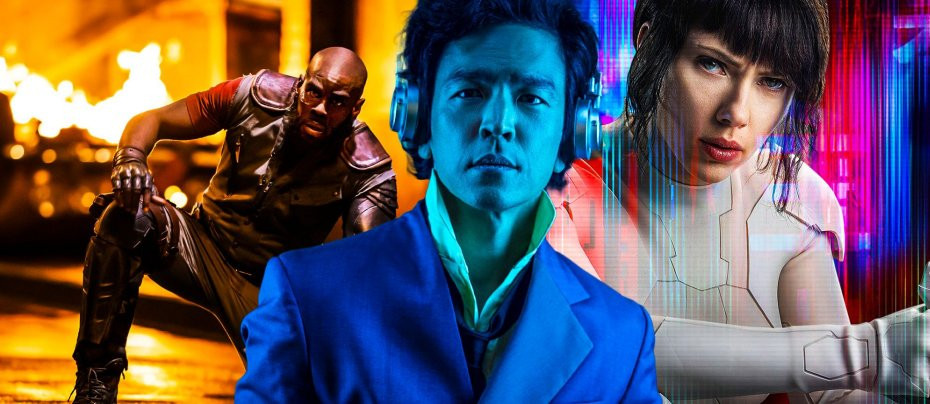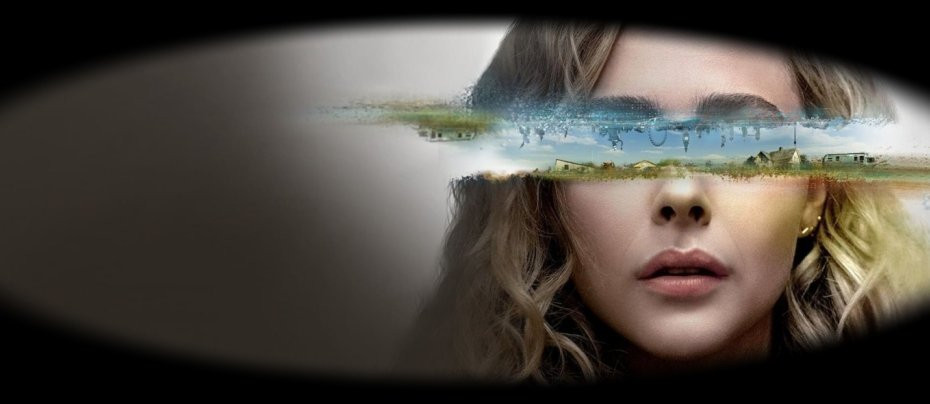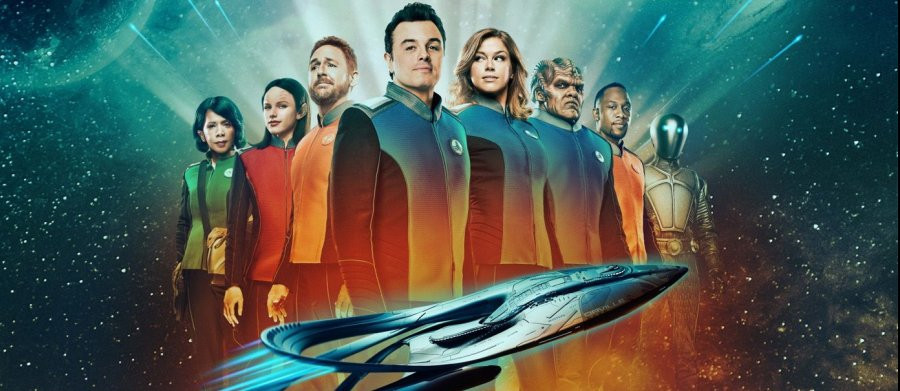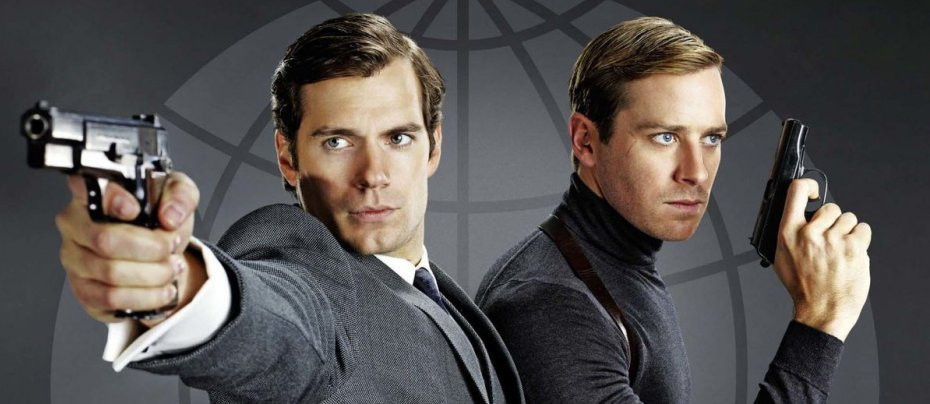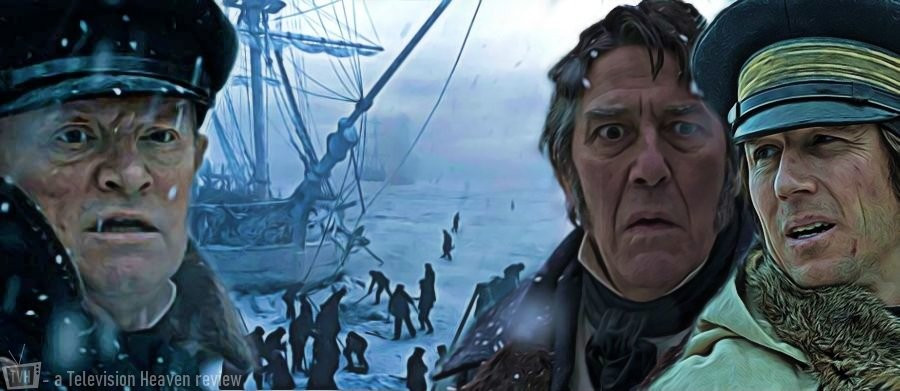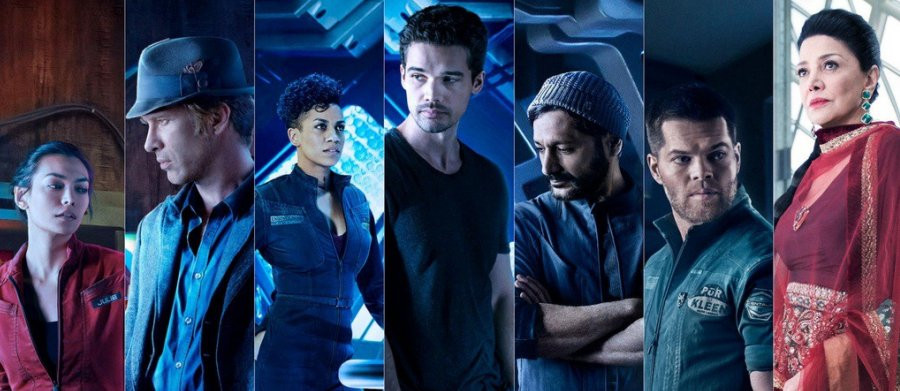
The Expanse
2015 - United StatesThe irony of The Expanse is that hardly anyone had heard of it until it was cancelled - which, of course, is why it was cancelled. The few who had heard of it, and seen it, tended to like it - a lot - and protested loudly when it was dropped by the 'Syfy' Channel. They made enough noise to attract the attention of Amazon, who recognised an opportunity when they saw one, picked it up, and marketed it as "the show saved by the fans."
This was in fact the first that many genre fans, including your reviewer, ever knew of it. Going back to its first season, one can understand both why those who had seen it were so passionate about it and why 'Syfy' had found it such a difficult commercial proposition.
It is television to be watched only when your brain is switched on. Someone has put some real thought into what life might actually be like on Earth and in Space in the 23rd Century. While it is unlikely that all their conclusions will turn out to be accurate, most look credible.
It is as close as mainstream television is likely to get to proper Arthur C Clarke-style "hard science fiction" - which takes the science more seriously than the fiction. In "soft science fiction" like Star Trek it is simply assumed that technological development will somehow find a way around all the obstacles to living in Space being much the same as living on Earth and the writers do not really care how - just insert "warp speed," "inertial dampers," etc.
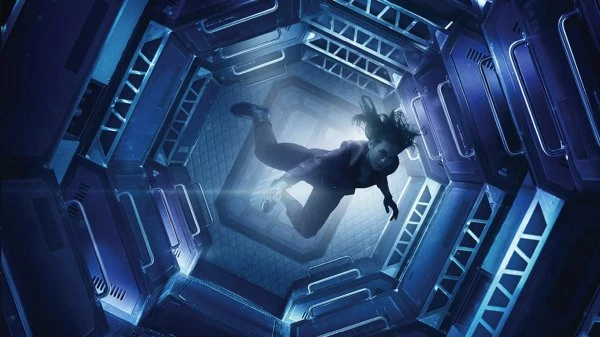
In The Expanse, Newton and Einstein still apply. Zero gravity is still a thing. So is its corrosive effect on human physiology. Travel beyond the speed of light is still impossible - as it almost certainly is in absolute terms according to Einstein. There is a time lag in long distance communication which is of great significance in the flow of events. Water and air are scarce resources. The Expanse tells the truth about trying to move beyond our planet.
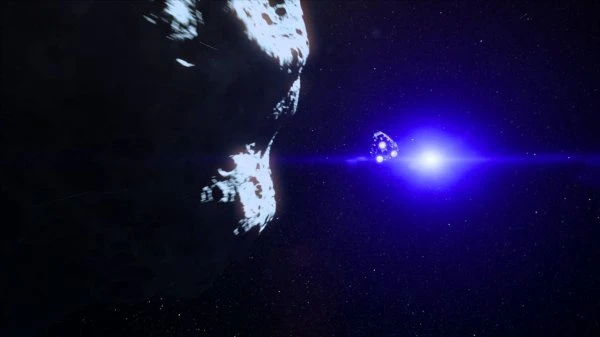
The whole thing looks beautiful as well as realistic. The Space scenes are delivered with a clean, clear aesthetic that evidently owes much to the then recent Sandra Bullock film 'Gravity,' as well as to high definition photography from the likes of NASA. All the lines seem sharp - as they really are where there is no atmosphere to diffuse the light - set against the pitch black immensity that is indeed the Expanse. The idea of being lost in it becomes truly frightening.

Most of the spaceships and parts of some of the space stations in The Expanse also look pristine and ultramodern, as we have come to expect of television science fiction. Yet there is a grungy underside to all this. Other ships are dirty old clunkers that look uncomfortable and dangerous, and life for many on the stations is squalid and brutal.
Earth is portrayed as looking not that much different from today, except with some futuristic CGI additions to existing locations. The meetings of the powerful take place in modern, open plan sets and locations, but when we go outside, we see that life for most people has not really improved.
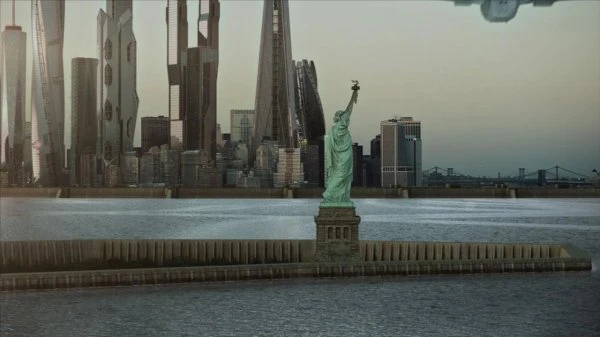
The writers have thought as seriously about the politics and economics of such a future as they have about its science and technology. We are offered neither a Utopia nor a Dystopia but a believable projection of current trends. The United Nations has become a true World Government and at least nominally democratic. However, the price of it getting real power is that, as always, power corrupts. The UN's 20th Century image of well-meaning incompetence has been replaced, in the eyes of many of its subjects and opponents, by that of an oppressive and aggressive superpower.

Earth is overpopulated and has environmental problems. Much of the population is surplus to economic requirements and lives off a Government dole. Wealth is concentrated in a few mega-corporations, not because of some great capitalist conspiracy but because that is the nature of a state which depends on heavy investment in ever more expensive technology.
Reacting against this, the Earth colony on Mars declared independence and exists in a Cold War with Earth. At first the Martians seem very impressive: they are dedicated and bound tightly together by a common purpose, turning their inhospitable planet into what Earth used to be. They have a Frontier mentality, they work hard, and their technology is in some respects superior to Earth's. It is only in later seasons that we begin to discover that Mars - very much the Soviet Union in the Cold War analogy - is by no means as strong and united as it appears.

The Earth-Mars Cold War is played out on the "Outer Planets," the stations, mainly on moons, in the further Solar System. Needless to say the inhabitants of these places, known as the Belters, a people weakened in body but hardened in mind by living in poverty and low gravity, are sick of being used by both sides and yearn for their own independence. The more militant form the Outer Planets Alliance (OPA), a terrorist group to some, a government-in-waiting to others.
It is greatly to the credit of the writers that, most unusually for television at the moment, they do not use all this fictional future politics as a pretext to lecture their audience on their opinions of current issues of controversy. They just seem to have asked "What is most likely here?"
With all this effort having gone into world building, it has to be said that there is nothing so special about the basic plot. This is intended as a spoiler free overview of the first season. If you are really interested, it is strongly recommended that you just watch it. You will probably enjoy it. Suffice it to say here that there are three separate but related strands to the plot.
The first has Thomas Jane, initially the only well known face in the regular cast, as a detective right out of Raymond Chandler - except on a space station - given the classic 'film noir' assignment of tracking down a rich man's wayward daughter. Cinema buffs will also enjoy spotting the references to 'Blade Runner' and 'Soylent Green' in this segment.
There is more for them in the beginning of the second strand, in which the casual interplay between the crew of a broken down old ice transporter resembles the wonderfully textured setting up of the original 'Alien.' We all know how that turned out... It is probably best not to get too fond of some of these people, but, given that they are played by actors named in the regular cast, it is surely no spoiler to suggest that it is worth keeping a special eye on Earther Second Officer James Holden (Steven Strait), Belter Engineer Naomi Nagata (Dominique Tipper), Martian Pilot Alex Kamal (Cas Anvar), and Earther Mechanic Amos Burton (Wes Chatham). All turn out to be well constructed characters with interesting backstories, especially Nagata and Burton, who seem to be referenced very obviously in the film 'Iron Sky: the Coming Race.'
Incidentally, this a happy example of a recent show in which "diversity" is not an issue because it flows naturally out of the situation: race has little meaning in the 23rd Century when everyone is integrated and the real divisions are between Earthers, Martians, and Belters, and are based on conflicting attitudes and interests rather than any ethnic difference.
The third strand of the season's plot has Chrisjen Avasarala (Shohreh Aghdashloo), a UN official with the wonderful UN title of Deputy Under-Secretary for Executive Administration, trying to make sense of reports she is getting from the Outer Solar System. Television politicians are usually either villains or saints, so it is refreshing to have a full portrait of the sort of person who aspires to power over others. If Avasarala is ruthless, devious, and deeply flawed, it is because she is also principled, caring, and convinced that she is trying to do the right thing.
The best performance, however, comes from the most familiar face in the guest cast, Jared Harris. He is at last beginning to get the recognition he deserves as one of the most versatile and consistently interesting actors working today. It is thanks to his skill that we never quite make up our minds about his character, Anderson Dawes, an organiser for the OPA. He can be friendly and charming, but also manipulative and he does some very nasty things. At the same time, we cannot simply write him off as a psychopath: he seems sincere, and it is impossible not to have some sympathy when he tells something of what made him as he is. Harris' mastery of Belter "Creole" - their own language delivered in what sounds like a combination of Estuary English, West Indian, and South African accents - is an additional joy in itself.
Chad L Coleman also convinces in what otherwise might be an absurd role, as a UN Colonel and possible war criminal seeking absolution among the Belters.
The first season is worth watching mainly for the visuals, the film references, the world building, the intelligent writing, the characterisation, and Jared Harris - make the most of him because he does not appear so much in the next and since then is only mentioned in passing. The seasonal storyline itself is not so satisfying. It seems to be intended to set up what follows. Although the first two threads come together in the last episodes of the season, it is only in later seasons that Avasarala really comes into play. The season finale is epic but very downbeat.
Yet Season One still did enough to show that there was something truly original here and was in itself far superior to the recent products of better known science fiction franchises.
Review: John Winterson Richards
John's Website can be found here: John Winterson Richards
Seen this show? How do you rate it?
Seen this show? How do you rate it?
Published on June 1st, 2021. Written by John Winterson Richards for Television Heaven.


